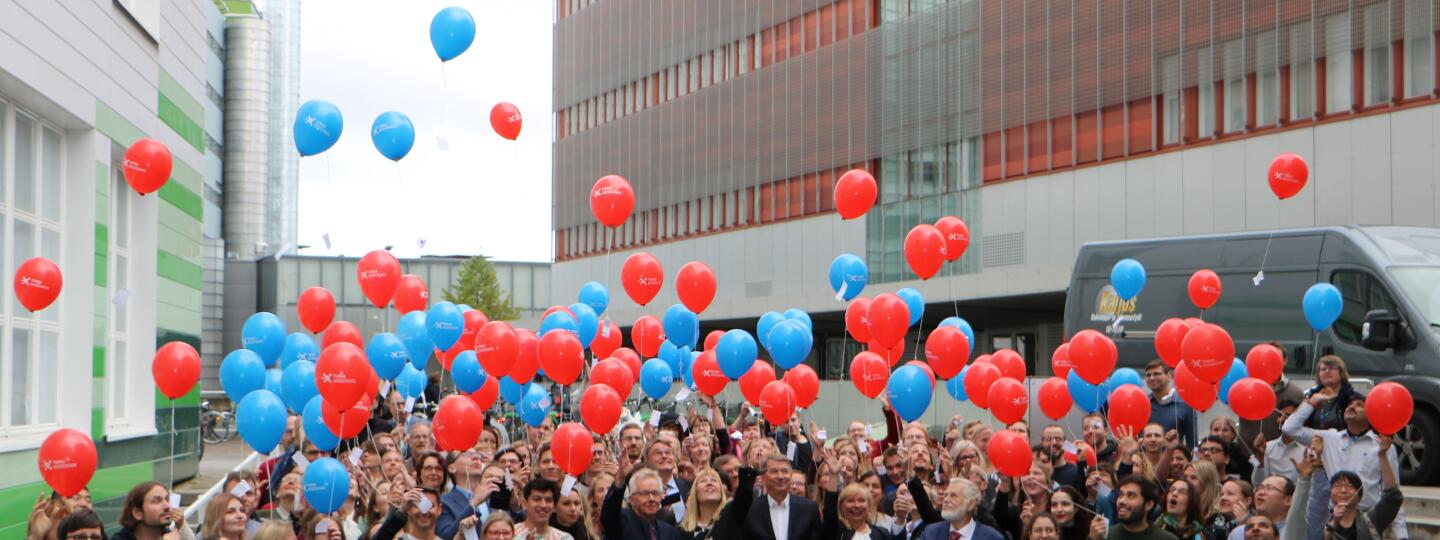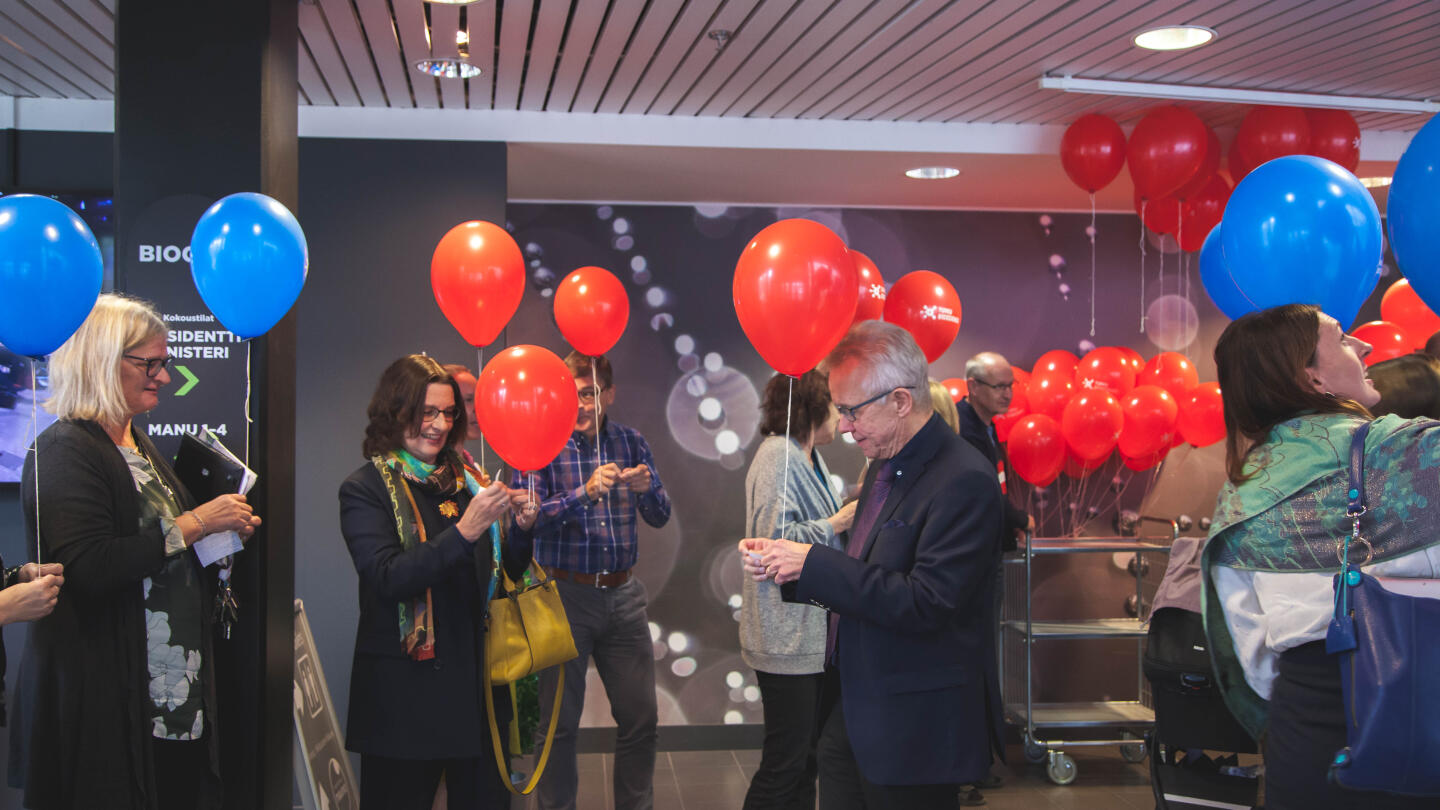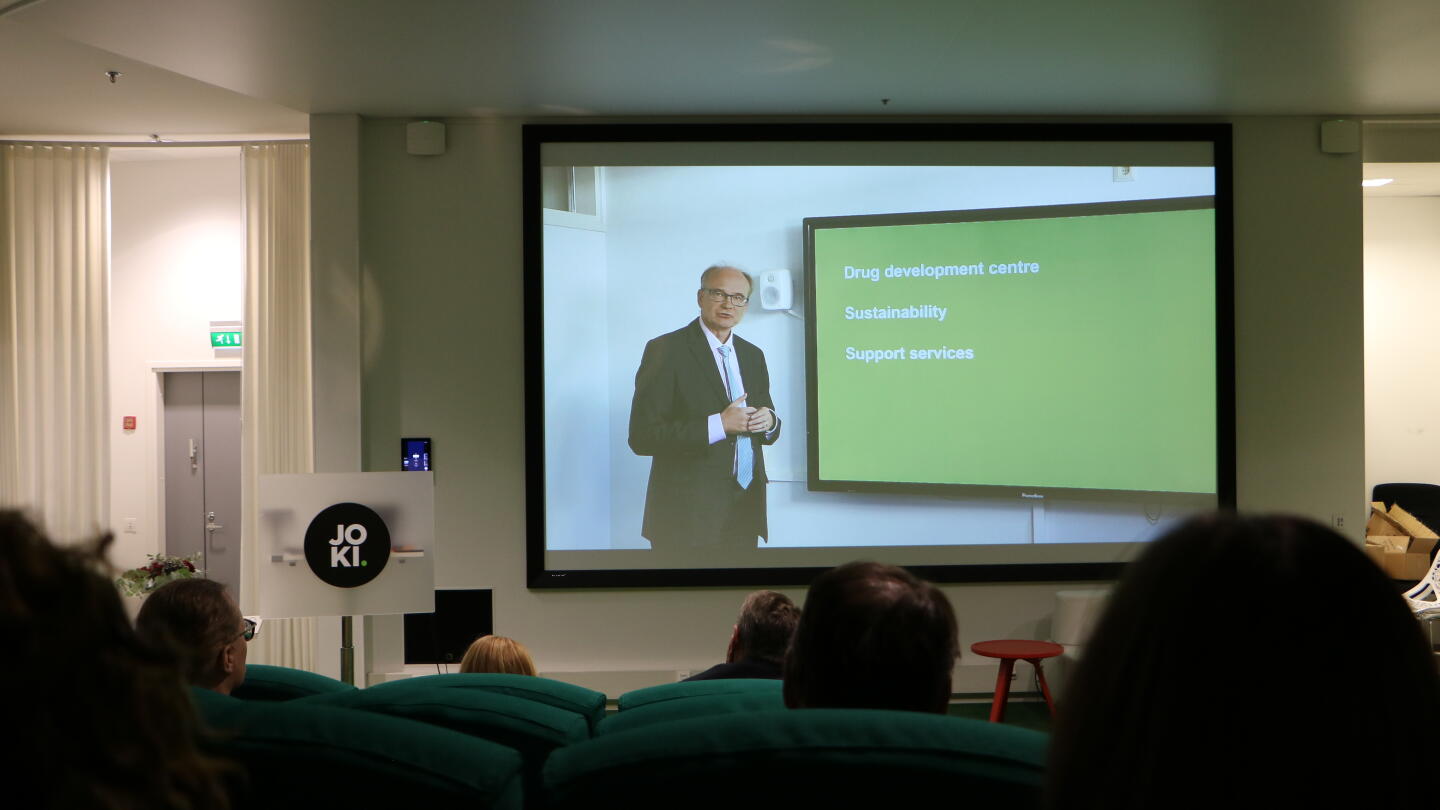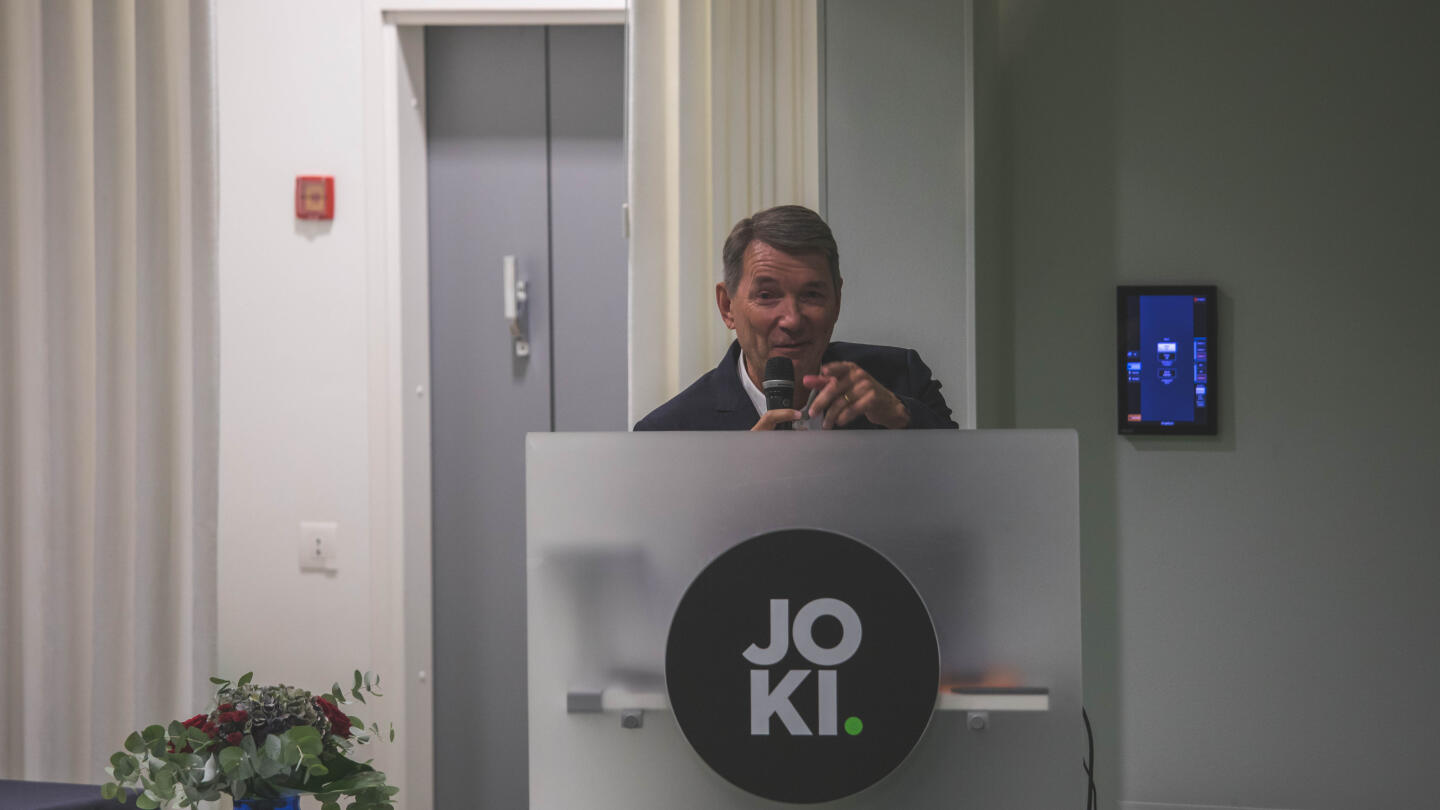Turku Bioscience Centre, or Turku Bioscience in short, a joint unit of the University of Turku and Åbo Akademi University offering technology services and producing top research in biosciences is celebrating its 30th anniversary this year. On Wednesday 2 October, the Centre celebrated this with a seminar showcasing its achievements throughout the years.
The most important theme of the day was how high-end open-access technology centres revolutionise the prerequisites for conducting scientific research. The seminar also introduced the opportunities brought by these centres for implementing large new projects and initiatives. At Turku Bioscience Centre, a very timely example of such a project is the planned the Drug Development Centre.
Co-operation as Strength of Turku Bioscience
The anniversary seminar was opened by Director of Turku Bioscience John E. Eriksson. He introduced the history and core facilities of the Centre. The speakers of the seminar represented the different organisations that participated in founding the Centre: the University of Turku, Åbo Akademi University, City of Turku, and Minister of Education of the time of founding the Centre, 1987–90, Christoffer Taxell.
The speeches addressed the opportunities technology offer as engines for high-end research and how they can be employed at all levels of teaching and tech-transfer. Additional topics were the long-term sustainability of infrastructure strategies and how to use these opportunities in an ethical and responsible way.
Vice-Rector of the University of Turku Kalle-Antti Suominen had recorded his speech beforehand, because at the time of the event, he was in La Palma in the Canary Islands participating in putting the University’s new observatory into operation. He discussed the life cycles of infrastructures, co-operation, and the importance of open access in research.
– It’s also important to invest in co-operation within Finland. The University of Turku and Åbo Akademi University set a good example of this with their collaboration in the operations of Turku Bioscience Centre, reminded Suominen.
Chairlady of the City Council Elina Rantanen reminisced the founding of BioCity and the scepticism towards the value of bioscience for Turku in the long run and how the success story of Turku Bioscience has proven the scepticism to be completely unwarranted. Furthermore, she introduced the plans made for the future of Turku Science Park.
– The City of Turku wants to invest in developing the knowhow in biotechnology in Turku. To make this happen, we need seamless co-operation between different operators. Biotechnology brings expertise and success to Turku, Rantanen said.
As a representative of the Academy of Finland, Senior Science Advisor Merja Särkioja spoke about the research infrastructure strategy of Academy of Finland and what kind opportunities international infrastructure centers offer to their host universities. An excellent example of this in Finland is the Euro-Bioimaging organization, whose headquarters will be located in Turku.
The speakers of the event included Director of Biocenter Finland national network of biocentres Marja Makarow. She introduced the network and the role of Turku Bioscience Centre in it. She, too, reminded the audience of the importance of collaboration.
– The goal is to create synergy with collaboration instead of competing for the scarce resources available in Finland, Makarow said.
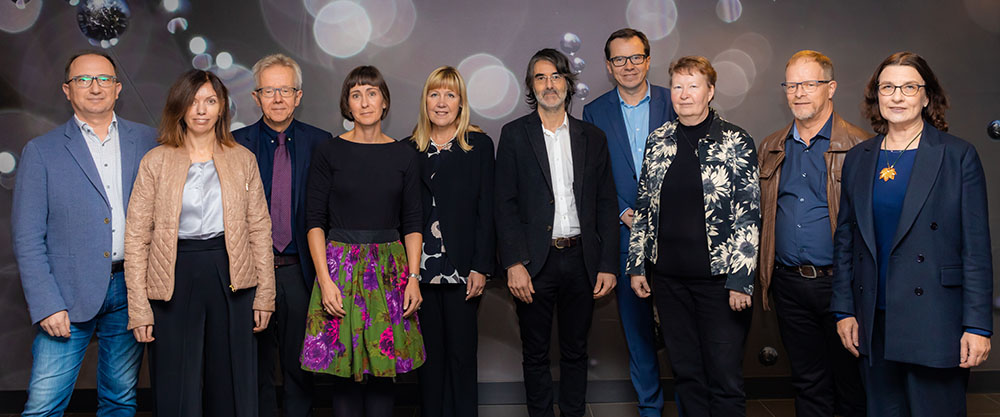
Speakers of the latter half of the seminar: Matej Orešič, Eleanor Coffey, John Eriksson, Johanna Ivaska, Riitta Lahesmaa, Michael J Courtney, Jukka Westermarck, Päivi Koskinen, Mikael Skurnik, and Lea Sistonen.
The latter half of the event was dedicated to introducing the Centre’s inventions and innovations on e.g. diagnostics, cell research, and the treatment of cancer and coeliac disease during the past 30 years.
World-class research equipment
Turku Bioscience has a significant role in enabling top research in bioscience in the Turku region and securing the operating conditions of businesses in the field. Well over 200 researchers work at the Centre and there are over a dozen research groups. Each year, the Centre gains €4–6 million in external funding, and the value of the equipment is over €10 million.
The Centre offers world class research infrastructure, expert personnel to guide the use of equipment, and top researchers whose expertise can be utilised in gaining maximum benefits from the use of different technologies and applications. With the top-quality research, the research groups at the Centre also participate in several commercialisation projects of research results and business collaborations.
Turku Bioscience is an internationally competitive cluster of expertise that generates important benefits for the entire Turku region, for the development of its industrial structure, and for improving its competitiveness.
Text: Lotta Junnila
Photos: Lotta Junnila and Solveig Eriksson
Video: Henok Karvonen
